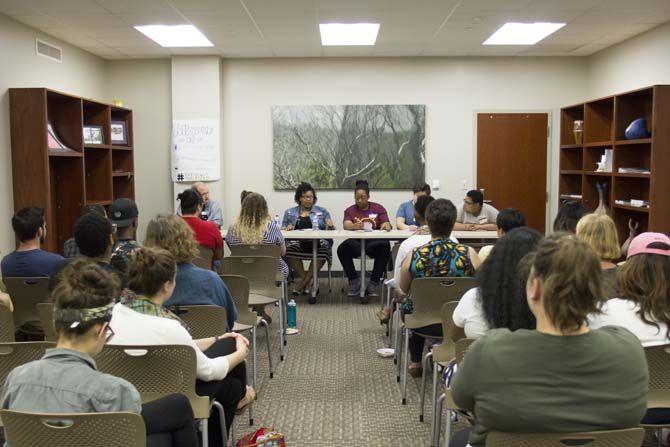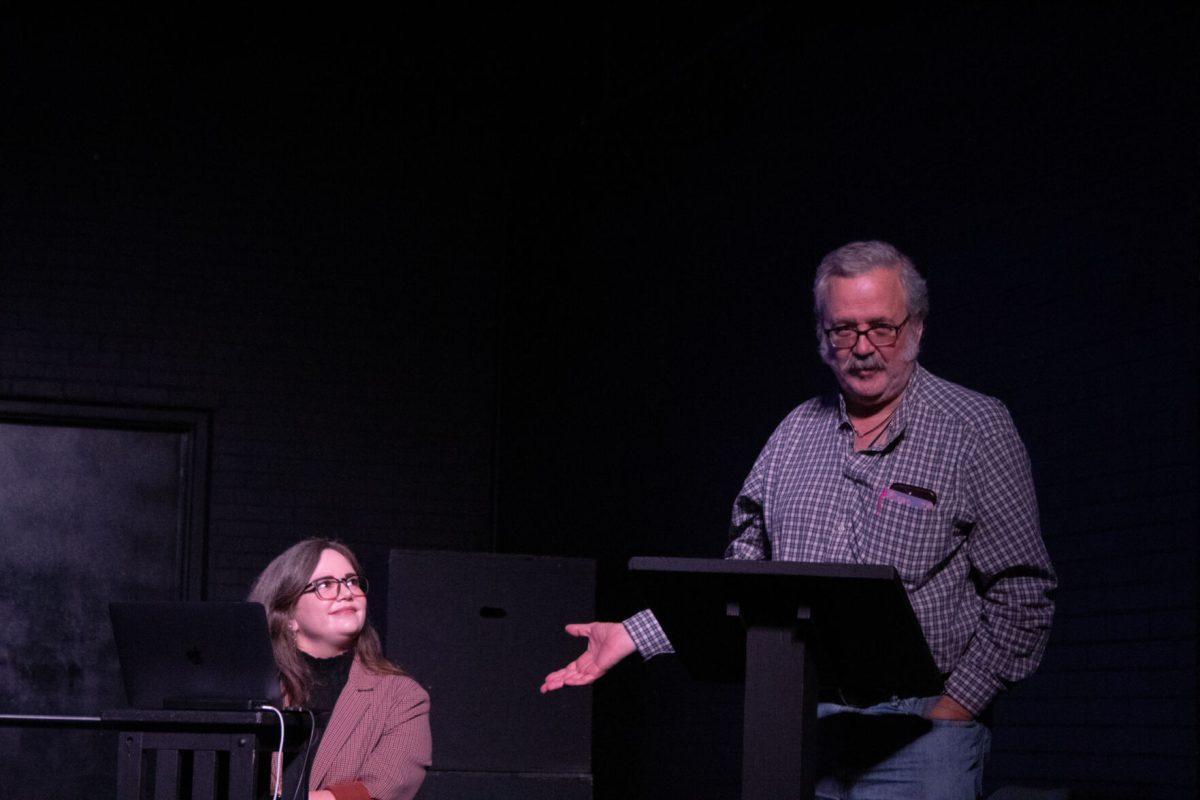Students and graduates reminded the University community Monday night that feminism should not only represent people who identify strictly as female.
Six panelists, alumni and undergraduates, and about 30 attendees congregated in the Women’s Center for the Trans-Inclusive Feminism Panel, which focused on several issues, including the need for increased inclusivity within the University.
“Right now, they make [transgender] people jump through hoops … to do anything on this campus,” biology senior Jem Martin said.
The Women’s Center and the LGBTQ Project hosted the event, which featured student panelists from Spectrum and Qroma.
Topics discussed ranged from Caitlyn Jenner, the need for housing for homeless transgender youth of color in Baton Rouge, the need for more genderless bathrooms from LSU Residential Life, growing up transgender and being a person of color in the queer community.
“I shouldn’t have to be at a panel on trans-inclusive feminism today because this should be the norm,” said alumnus and panelist Peter Jenkins. “But we’re here and we’re fighting this.”
Anthropology freshman and panelist Jay Curtis said they feel heavily excluded from the feminist community as a non-binary transgender man.
“Everybody should just be who they are, and there should be no limit or boundary to it,” Curtis said.
When people define feminism, they should think outside of the binary, panelist and former University student Lee Fleming said. As someone who identifies as non-binary, Fleming said they do not feel included by feminism or womanism movements.
As the conversation turned toward University inclusivity, graduate student and Women’s Center’s Women’s History Month coordinator Tiffany Shierling said more support from University administrators is necessary, and students should be more supportive and less “hateful.”
Qroma adviser and panelist Ricardo Horne said he thinks the University is far ahead of other Southern institutions in gender-inclusivity.
But Shierling said she has witnessed students say rude things about transgender and gay people, which she attributes to Southern culture.
“I definitely see LSU as an ‘old boys’ club,” Fleming said. “And the only people who benefit from [that] is the old boys.”
Fleming gave an example of a professor who took points off an essay for using they/them pronouns in a singular way.
When Jenkins was a student living in Laville Hall, they said transgender people were not safe to use non-trans-conscientious bathrooms on campus. This is one of the reasons why Jenkins said they have no respect for administration.
When University administration say they respect transgender people or are doing things to help their community, Jenkins said, “they’re lying.”
Trans-inclusive panel focuses on University, feminist acceptance
By Sarah Gamard
March 14, 2016
Panelist speak about the importance of trans-inclusion within the feminist movement and scholarship on Monday, March 14, 2016, at the Women’s Center.
More to Discover










